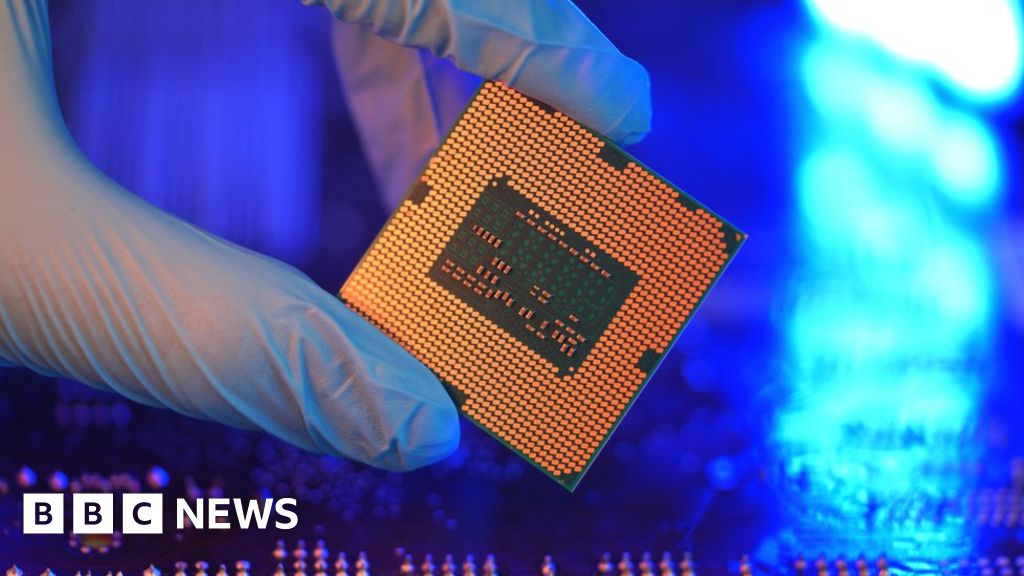China Curbs Exports Of Key Computer Chip Materials

The Chinese government is tightening controls over exports of two key materials used to make computer chips.
From next month, special licenses will be needed to export gallium and germanium from China, which is the world's biggest producer of the metals.
It comes after Washington's efforts to curb Chinese access to some advanced microprocessors.
The announcement comes just days before a high-stakes trip to Beijing by US Treasury Secretary Janet Yellen.
On Monday, China's Ministry of Commerce said the restrictions were needed to "safeguard national security and interests".
The silvery metals are used in semiconductor, communications and military equipment. They are also key materials in products like solar panels.
Semiconductors, which power everything from mobile phones to military hardware, are at the centre of a bitter dispute between the world's two largest economies.
The US has taken steps to restrict China's access to technology it fears could be put to military use, such as chips used for supercomputing and artificial intelligence.
In October, Washington announced that it would require licences for companies exporting chips to China using US tools or software, no matter where they are made in the world.
The efforts have been joined by countries including the Netherlands and Japan.
This followed plans to restrict its "most advanced" microchip technology exports, which the Netherlands announced earlier this year.
The controls are expected to affect Dutch chip equipment maker ASML, a key player in the global microchip supply chain.
The measures, which were announced in March, will affect 23 types of semiconductor manufacturing equipment.
China has frequently called the US a "tech hegemony" in response to export controls imposed by Washington.
In recent months, Beijing has imposed restrictions on US firms linked to the American military, such as aerospace company Lockheed Martin.
US Treasury Secretary Janet Yellen, who is due to make a four-day visit to China from Thursday, has warned against breaking economic ties between Washington and Beijing.
"I think we gain and China gains from trade and investment that is as open as possible, and it would be disastrous for us to attempt to decouple from China," she said, during an appearance before Congress last month.
Ms Yellen will be the second senior US official to visit the country this year.
In June, US Secretary of State Antony Blinken held talks with China's President Xi Jinping in Beijing, restarting high-level communications between the rival superpowers.
From Chip War To Cloud War: The Next Frontier In Global Tech Competition
The global chip war, characterized by intense competition among nations and corporations for supremacy in semiconductor ... Read more
The High Stakes Of Tech Regulation: Security Risks And Market Dynamics
The influence of tech giants in the global economy continues to grow, raising crucial questions about how to balance sec... Read more
The Tyranny Of Instagram Interiors: Why It's Time To Break Free From Algorithm-Driven Aesthetics
Instagram has become a dominant force in shaping interior design trends, offering a seemingly endless stream of inspirat... Read more
The Data Crunch In AI: Strategies For Sustainability
Exploring solutions to the imminent exhaustion of internet data for AI training.As the artificial intelligence (AI) indu... Read more
Google Abandons Four-Year Effort To Remove Cookies From Chrome Browser
After four years of dedicated effort, Google has decided to abandon its plan to remove third-party cookies from its Chro... Read more
LinkedIn Embraces AI And Gamification To Drive User Engagement And Revenue
In an effort to tackle slowing revenue growth and enhance user engagement, LinkedIn is turning to artificial intelligenc... Read more

